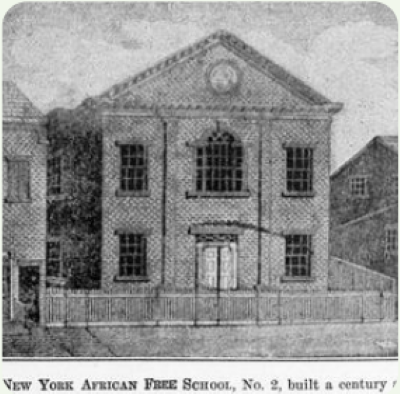James McCune Smith, MD
Physician
Physician, abolitionist, author, scholar, and apothecary
James McCune Smith, MD Heading link

James McCune Smith was born into slavery in 1813 in Manhattan and was set free on July 4, 1827, when he was age 14, by the Emancipation Act of New York. Smith attended the African Free School in New York City, where, as one of the school’s star pupils, he was selected to address the Marquis de Lafayette when the abolitionist Revolutionary War hero visited the school during his farewell tour of America in 1924. Upon graduation, at 15, with honors, he applied to Columbia University and Geneva Medical College in New York State but was denied admission due to racial discrimination.
Smith then apprenticed to a blacksmith, while continuing his studies with area ministers and learned Latin and Greek from his mentor, the Reverend Peter Williams, Jr., another African Free School alum, and the pastor of St. Philip’s Church, the leading black church in the city. Smith also would later master French, and demonstrate proficiency in Spanish, German, Italian and Hebrew.
Williams encouraged Smith to attend the University of Glasgow in Scotland and benefactors provided money for his trip overseas and his education. In a span of five years, he earned his bachelors, masters, and completed his medical degree in 1837, then completed his residency in Paris. Returning to New York City, he opened a medical office and a pharmacy that attracted interracial clientele.
Dr. Smith practiced as a physician for nearly 20 years at the Colored Orphan Asylum in Manhattan, and was a public intellectual: he contributed articles to medical journals, participated in learned societies, and wrote numerous essays and articles drawing from his medical and statistical training, to refute common misconceptions about race, intelligence, medicine, and society in general.
In 1840, Smith authored the first medical case report by an African American, titled, “Case of ptyalism with fatal termination,” but was denied the opportunity to present this paper on fatal tongue-swelling to the New York Medical and Surgical Society, “lest it might interfere with the ‘harmony’ of the young institution”. He was invited as a founding member of the New York Statistics Society in 1852, and was elected as a member in 1854 of the recently founded American Geographic Society.
James McCune Smith, MD Heading link
